Crimean Library

Statement by the Crimea Platform Expert Network on the occasion of the Fifth Summit of the Crimea Platform
24 September 2025
From 2022 on, in the context of full-scale war, the issues of Ukraine's temporarily occupied territories shall not be considered selectively. All occupied regions — including the Autonomous Republic of Crimea, the city of Sevastopol, and parts of the Donetsk, Luhansk, Kherson, and Zaporizhzhia regions — are parts of a single space of armed aggression, large-scale and systematic human rights violations, and international crimes by the Russian Federation, and shall be the subject of a sole negotiation and strategic track. Any separate discussions on the “specific” status of the Autonomous Republic of Crimea and the city of Sevastopol or the Black Sea-Azov region carry the risks of fragmenting international solidarity and play into the Russian Federation’s approach of “special cases,” which is unacceptable for the international security and legal order system.
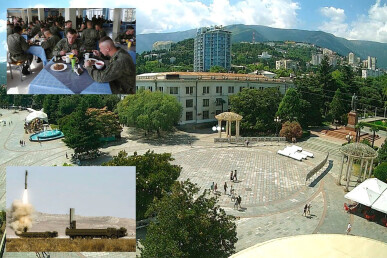
Peculiarities of the 2023 Crimean Holiday Season — a «Tourism» in Camouflage
21 August 2023
The gigantic 3-fold surge retail trade turnover in Crimea and Sevastopol in early 2023 was due solely to the presence of a huge number of Russian servicemen, i.e. men with a healthy appetite. The vast majority of "new Crimean tourists" in 2022-23 are wearing Russian army camouflage. There is also a "new medical tourism" -- that is, treatment and rehabilitation of thousands of wounded soldiers who now use previously civilian hospitals, as well as a "human shield" made of the children vising Artek.
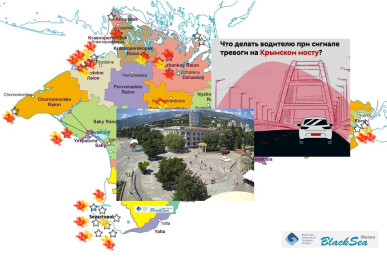
Crimea During the Great War. Part 2. Extreme Tourism or «New Types of Tourism» and Tourist Numbers (2)
06 August 2023
One doesn't need to be a tourism professional to comprehend the fundamental incompatibility of tourism and military operations. So, to understand the realities of Crimea’s 2023 tourist season, it’s enough to read the list of unmanned air and sea drone attacks on Crimean military targets between June 1-July 30, 2023 and look at the tourist instructions on passing the Kerch Bridge inspections, with 10 of them directly impacting automobile and rail transportation.
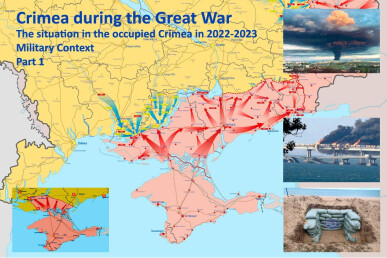
Crimea during the Great War. The situation in the occupied Crimea in 2022-2023. Military Context (1)
12 June 2023
Since February 24, 2022, the Crimean peninsula has acquired a new pivotal function — that of a Russian military foothold. In early 2022, Crimea developed the following new role and specifics of the frontline region. Since mid-2022, the war has come directly to Crimea. The events of the second half of 2022 have effectively transformed the Crimean peninsula from being a frontline region of the winning army to a frontline region of a limited combat operations of the losing army. By 2023, all that created in and around the occupied peninsula a fundamentally new atmosphere of expectation of an upcoming Ukrainian offensive on Crimea, which now affects all areas of life there.
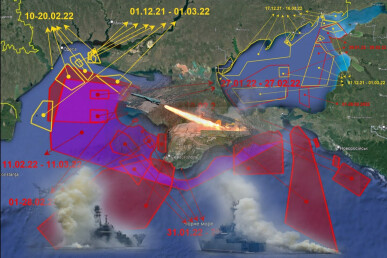
Increased Risks. Obstruction of Traffic in the Black and Azov Seas by Russia due to the Closure of Sea Areas for Military Exercises as of 15 February 2022
15 February 2022
This analytical review presents the results and conclusions made by the Monitoring Group of Black Sea Institute of Strategic Studies and the editorial board of BlackSeaNews based on monitoring in January-February 2022 the following area: Obstruction of traffic in the Black Sea and the Sea of Azov by the Russian Federation due to closures of sea areas for or under the pretext of military exercises.
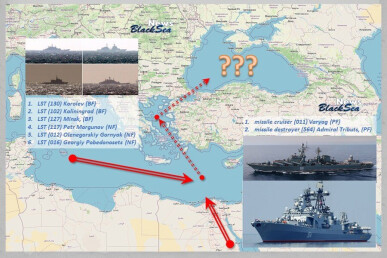
The Presence of Russian Warships in the Black Sea and the Mediterranean Sea in January 2022
01 February 2022
In January 2022, the number of Russian warships in the Mediterranean Sea changed dramatically. 6 major landing ships from the Baltic and Northern Fleets joined the "Mediterranean Squadron" of the Russian Federation. A missile cruiser and a missile frigate from the Pacific Fleet are expected to arrive via the Suez Canal. Thus, in February 2022, the Russian naval group in the Mediterranean Sea will have 18 major warships, including 8 missile ships (in December 2021, these figures were 8 and 5 respectively)
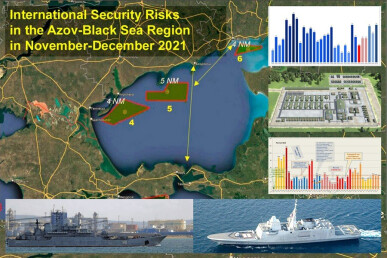
International Security Risks in the Azov-Black Sea Region in November-December 2021
20 December 2021
Russia is continuing to prepare for war. Increased obstruction of traffic in the Black Sea and the Sea of Azov has been recorded. The possibility of military action on the Ukrainian coast of the Sea of Azov, in particular airborne assault and amphibious operations, cannot be ruled out. The risk of Russian aggression will increase during the winter holidays and the Winter Olympics in China. The almost continuous presence in the Black Sea of powerful NATO missile ships is an effective deterrent to the aggressor.
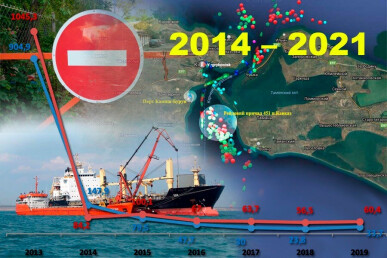
Occupied Crimea. Exports and Imports / 2014-2021
23 November 2021
In 2013, foreign exports from the Crimean Peninsula amounted to 904.9 million dollars, and foreign imports totalled 1.044 billion dollars; Sevastopol’s exports and imports were valued at 99.8 million dollars and 106.9 million dollars, respectively. Thus, in 2020, exports from Crimea decreased by 26.7 times in dollar terms compared to 2013, the last pre-war year, and exports from Sevastopol dropped by 21,2 times. The decline in imports over the same period was by 25.4 times in Crimea and by 21.4 times in Sevastopol.
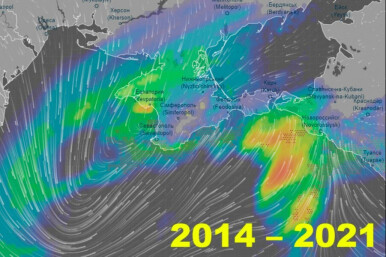
Water in Occupied Crimea / 2014-2021
23 November 2021
Russia's decision to finally renovate the water supply networks on the occupied peninsula was also a consequence of the fact that in early 2021, Ukraine, for the first time at the level of state documents, recorded its position on restoring water supply to Crimea through the North Crimean Canal. At the same time, the risks of a possible military special operation of the Russian Federation on the territory of the Kherson region, where the North Crimean Canal begins, remain.
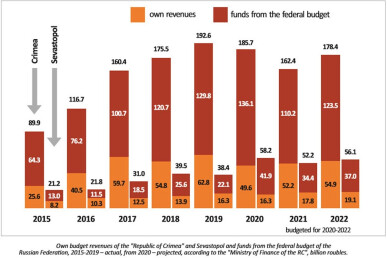
The Crimean Budget. Small Business. Salaries and Pensions / 2014-2021
23 November 2021
After 2015, it became clear that the regime of international sanctions and the blockade of the occupied peninsula by mainland Ukraine made not only the economic development but also financial self-sufficiency of Crimea and Sevastopol impossible. Since then, the analysis of the budgets of Sevastopol and "the Republic of Crimea" has lost its economic sense. The basis and, at the same time, the main intrigue of the annual budgeting in Crimea are the same – the size of the subsidies from the Russian Federation.
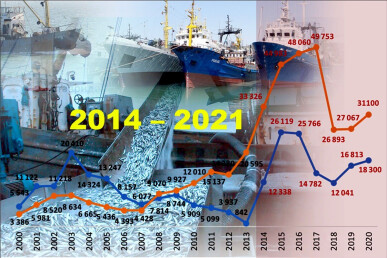
The "Trophy Economy". The Commercial Exploitation of Marine Biological Resources in the Black Sea and the Sea of Azov / 2014–2021
23 November 2021
In recent years, Russia has stopped publishing data on the actual "Crimean landings," but we can easily estimate the scale of the occupiers' acquisitions in this area. Upon comparing Russian landings of certain species of commercial fish only in the Black Sea, we can see that in five years , the landings of the sprat increased 3.9 times compared to those of the last five pre-war years, the landings of the turbot – grew 9.2 times, and of the horse mackerel – rose 20 times.
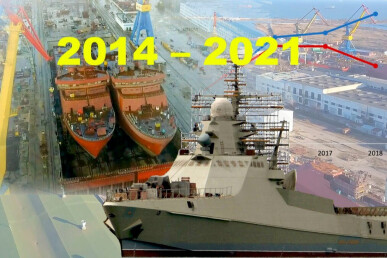
The "Trophy Economy". Militarization as a Factor of Industrial Growth / 2014-2021
21 November 2021
The growth of industrial production in occupied Crimea was achieved due to the provision of Crimean enterprises with military orders. However, in the conditions of international sanctions and competition from the Russian military-industrial complex for state orders, in the coming years, the Crimean shipyards are unlikely to lay down new ships. They will be completing the vessels already laid down at the Zaliv Shipyard: first of all, the helicopter-carrying amphibious assault ships. Ship repair will become the main activity of other Crimean shipyards, which will lead to an increased workload of the plants in Sevastopol
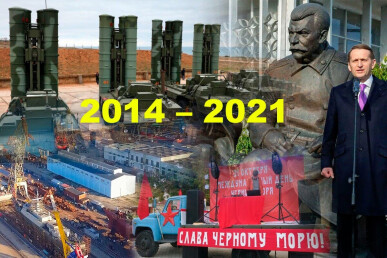
Back in the USSR. The Reverse Restructuring of the Crimean Economy / 2014-2021
21 November 2021
As of November 2021, the following main conclusions can be made about the reverse restructuring of the Crimean economy: the programme of rearmament of the Black Sea Fleet of the Russian Federation with the newest missile ships, which had priority over other Russian fleets, is mostly coming to an end; the formation of a military-industrial base on the Crimean Peninsula to serve the needs of the occupying force of Russian troops is almost completed.
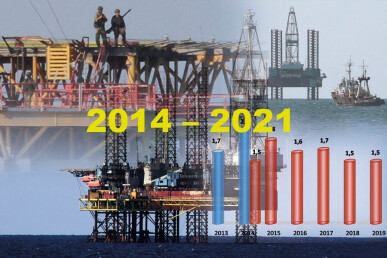
The "Trophy Economy". The Development of the Stolen Ukrainian Black Sea Shelf / 2014-2021
20 November 2021
During 2014-2021, in violation of the UN Convention on the Law of the Sea, Russia has illegally extracted hydrocarbons in the waters of the Sea of Azov and the Black Sea near occupied Crimea. There are two proceedings on these issues currently underway in international courts. The only thing that can be considered a notable "achievement" in the Russian development of the Ukrainian shelf is the creation of mini-military bases on the oil platforms. In 2021, due to international sanctions banning the export of equipment for offshore gas production to Russia, the gas output has decreased to the level of 2012.
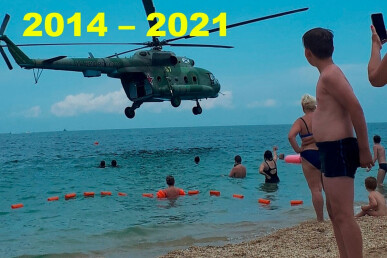
The Occupied Crimean Tourism / 2014-2021
20 November 2021
As a result of the occupation and ensuing militarization of Crimea, tourism has ceased to be a priority industry of the Crimean economy in terms of budget and investment. Official estimates of the tourist flow to the peninsula are propagandistic and inflated by 2-3 times. The real size of the tourist flow to occupied Crimea is 2.5 million people, which is 1.6 times less than the estimated number of tourists before the occupation (4 million) and 3.2 times less than in Soviet times (8 million people)